Parliament

Previewing the elections in Northern Ireland, Scotland, and Wales
For the first time since the 1960’s, the entire of the UK will vote in an election other than a referendum or General Election, with Scotland, London, Wales, and Northern Ireland going to the polls. Here, Dr Kenneth Bunker, from the Democratic Dashboard team, examines recent results in Northern Ireland, Scotland and Wales and looks […]

Ireland demonstrates that you can have both proportional representation and a constituency link
Ireland just held a General Election using an electoral system which, unlike the UK’s, has a proportional element. Here, Chris Terry argues that the Irish election provided strong evidence that candidate-centred (rather than list-centred) proportional representation using the Single Transferable Vote, and localised politics with a constituency link, can go hand-in-hand. Similar PostsLocal elections: diverse […]

The UK scores worst in electoral integrity in Western Europe. Here’s why:
The UK performs poorly when it comes to issues of electoral integrity, lagging behind European neighbours but does particularly poorly when compared with Scandinavia – which as is the case in many fields outperforms Britain. Here, Pippa Norris looks at the reasons why, pointing to voter registration procedures, electoral laws, media coverage, constituency boundaries, and the […]
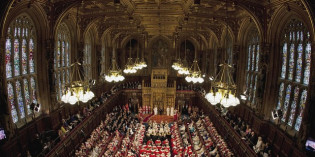
Parliament, Government and Secondary Legislation: Lords Select Committees respond to the Strathclyde Review
Following the House of Lords’ refusal to allow the government to enact secondary legislation during the row over tax credits cuts last year, the government set up the Strathclyde Review, which suggested reforms which could alter the balance between the government and the two houses of parliament. Here, Mark Elliott welcomes calls from various parliamentary committees […]
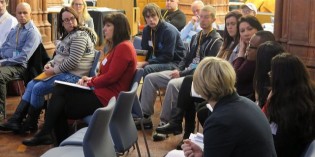
Public consultations do not currently enable all stakeholders to effectively contribute to the legislative process
In a recent study, Helen Taylor and Axel Kaehne looked at responses to the Social Services and Well-being (Wales) Bill to consider how effective the public consultation process is at incorporating wider expertise into the legislative process. The findings highlighted a number of issues relating to both the nature of responses and the way in […]
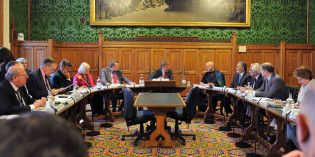
Incorrect assumptions about bill committees can damage perceptions of the policy influencing power of Parliament
Bill committees play a crucial role in the scrutiny of government legislation, yet they have traditionally been overlooked by academics and journalists in favour of the more newsworthy aspects of parliamentary scrutiny. In this article, Louise Thompson challenges the myths about bill committees that have developed from the lack of interest. Similar PostsGender diversity among […]
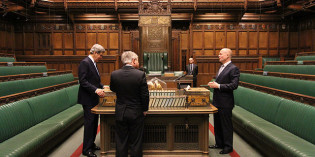
PMQs can force the government to respond to issues it might otherwise ignore and direct the political agenda in new directions
Prime Minister’s Questions is one of the most public venues for MPs to express their opinions and represent the views of their constituents. But can opposition parties and backbenchers – MPs who hold no governmental office and are not a spokesperson in the Opposition – drive the content of such questions? Shaun Bevan and Peter […]

Research from Sweden and the Netherlands shows that ‘bloc’ politics leads to a greater degree of adversity in legislatures
Proponents of electoral reform in the UK often point to the more consensual nature of democracy in continental European countries as a justification for their position, but this isn’t always the case. For example, as Tom Louwerse, Simon Otjes, David M. Willumsen and Patrik Öhberg show, Sweden’s parliamentarians are notable for their adversarial behaviour when compared to […]
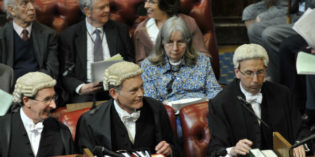
How democratic is the UK’s House of Lords, and how could it be reformed?
As part of the 2017 Audit of UK Democracy, Sonali Campion, Sean Kippin and the DA team examine how the UK’s deeply controversial current second chamber, the House of Lords, matches up to the criteria for liberal democracies with bi-cameral legislatures. Now an almost-all appointed Chamber, the House of Lords has had some prominent or more bipartisan influence on moderating Commons […]
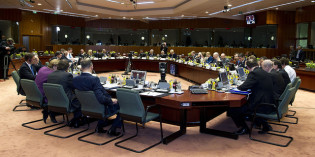
The UK’s uncertainty around sovereignty is likely to get worse as the EU referendum approaches
The negotiations around the UK’s position in the EU have raised questions around the idea of UK sovereignty, which are only likely to get more complicated domestic measures on sovereignty can also be expected in the near future. Mike Gordon unpicks some of the key debates that are currently ongoing, and assesses the potential legal and constitutional implications of […]


 Democratic Audit's core funding is provided by the Joseph Rowntree Charitable Trust. Additional funding is provided by the London School of Economics.
Democratic Audit's core funding is provided by the Joseph Rowntree Charitable Trust. Additional funding is provided by the London School of Economics.